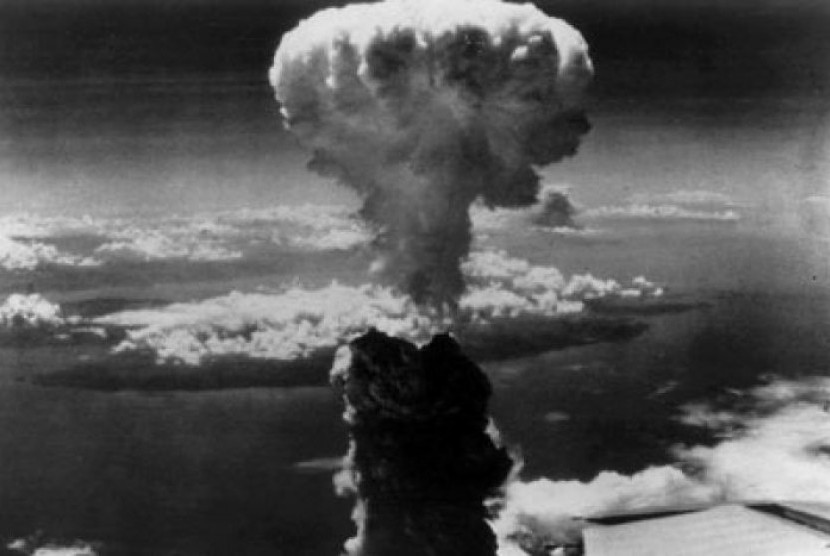REPUBLIKA.CO.ID, TOKYO -- Japan on Sunday marked the 70th anniversary of the atomic bombing of Nagasaki that claimed more than 74,000 lives almost instantly, in one of the final chapters of World War II.
Bells tolled and tens of thousands of people, including ageing survivors and the relatives of victims, observed a minute's silence at 11:02 am (0202 GMT), the exact moment the blast devastated the port city on August 9, 1945.
Prime Minister Shinzo Abe laid a wreath of flowers, with representatives from 75 countries, including US ambassador Caroline Kennedy, attending the ceremony.
"As the only country attacked with an atomic bomb in war, I am renewing our determination to lead the global effort of nuclear disarmament, to create a world without such weapons," Abe said in his speech.
Abe also said the country would continue to abide by its long-held non-nuclear principles: not producing, possessing or allowing nuclear weapons on Japanese territory.
He was criticised for failing to mention the three principles at a ceremony days earlier in Hiroshima, alarming atomic bomb survivors, particularly at a time when the nationalist leader is trying to push through legislation to expand the role of the military.
Nagasaki Mayor Tomihisa Taue appeared to implicitly criticise the bills in a speech at the ceremony.
"Worries and anxieties are now spreading among us that this pledge made 70 years ago and the principle for peace in the Japanese constitution may be now undermined," he said to loud applause.
Abe has faced criticism and opposition for his efforts to boost the role of his pacifist country's Self-Defence Forces, changes that open the door to putting troops into combat for the first time since the war.
A constitution imposed by US occupiers after the war prevented Japan's military from engaging in combat except in self defence.


